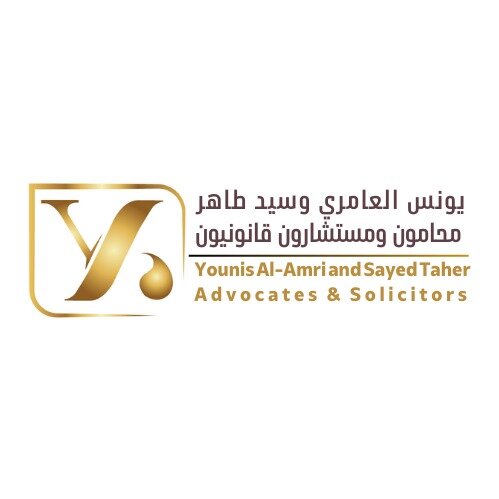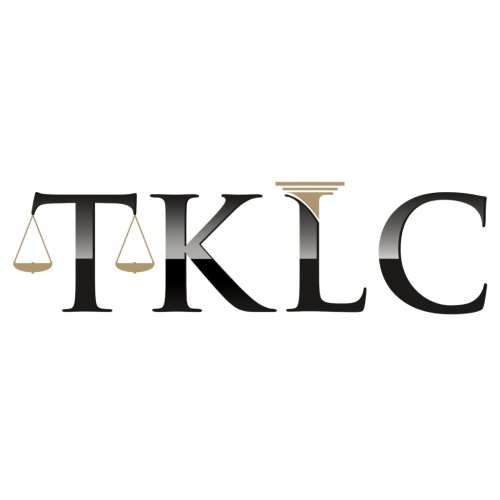Best Private Equity Lawyers in Muscat
Share your needs with us, get contacted by law firms.
Free. Takes 2 min.
List of the best lawyers in Muscat, Oman
About Private Equity Law in Muscat, Oman
Private equity is an essential part of Muscat’s emerging financial sector and economic diversification strategy. It involves investment funds, generally organized as limited partnerships, that buy and restructure companies not publicly traded on a stock exchange. The market in Oman is regulated and growing, attracting both local and international investors seeking opportunities in sectors like infrastructure, energy, healthcare, and technology. As foreign direct investment is encouraged in Oman, the legal and regulatory environment governing private equity in Muscat is designed to ensure transparency, investor protection, and compliance with Omani laws.
Why You May Need a Lawyer
Private equity transactions in Muscat often involve complex legal documents, negotiations, and compliance requirements. You may need a lawyer if you are:
- Considering investing in or launching a private equity fund in Muscat
- Looking to acquire or exit from a business as part of a private equity deal
- Navigating ownership structures, shareholder agreements, and regulatory compliance
- Concerned about due diligence, risk assessment, or cross-border investment considerations
- Experiencing disputes between partners or with portfolio companies
- Requiring guidance with tax, employment, or intellectual property implications of a deal
- Ensuring antitrust and competition law compliance
Engaging a legal professional with experience in private equity can help you safeguard your interests, prevent costly mistakes, and ensure that your transactions comply with local laws.
Local Laws Overview
Private equity in Muscat is governed by a mixture of Oman’s Commercial Companies Law, Capital Market Authority (CMA) regulations, Foreign Capital Investment Law, and sector-specific laws. Some of the key aspects include:
- Ownership Structures - Private equity vehicles are commonly established as limited liability companies (LLCs) or joint stock companies.
- Foreign Investment - While Oman allows up to 100 percent foreign ownership in many sectors, certain industries remain restricted and require local participation.
- Regulatory Oversight - The CMA regulates most fund formations, public offerings, and market conduct.
- Shareholder and Partnership Agreements - These contracts must adhere to Omani law and define exit rights, profit sharing, governance, and more.
- Taxation - Oman does not levy personal income tax and has a flat corporate tax. However, there are withholding taxes and VAT considerations depending on the structure and nature of the investment.
- Dispute Resolution - Most disputes are resolved before the Omani courts, though arbitration and mediation clauses are common in contracts.
Frequently Asked Questions
What is private equity and how does it work in Muscat?
Private equity is investment capital from high-net-worth individuals or institutional investors, pooled to acquire companies. In Muscat, private equity transactions generally involve creating an investment vehicle, raising funds, investing in businesses, and eventually exiting those investments for a return.
Can foreigners invest in private equity in Oman?
Yes, Oman permits foreign investment in many sectors, subject to certain restrictions outlined in the Foreign Capital Investment Law and sector-specific regulations. Legal advice is essential to determine eligibility and compliance requirements.
What are the most common legal structures for private equity funds in Muscat?
Most private equity funds in Oman are structured as limited liability companies or joint stock companies, depending on the size, nature, and investor requirements. The structure affects liability, tax, and regulatory obligations.
Do private equity deals in Oman require government approval?
Certain deals may require approval from the Capital Market Authority or sector regulators, especially in regulated industries such as banking, telecommunications, or energy.
What are some challenges foreign investors face in Omani private equity?
Common challenges include navigating ownership restrictions, understanding legal and tax requirements, ensuring compliance, and managing language or cultural differences during negotiations and due diligence.
How are private equity disputes resolved in Muscat?
Disputes can be settled through the Omani courts, but many contracts specify arbitration or alternative dispute resolution methods to handle conflicts efficiently and confidentially.
Are there exit restrictions for private equity investors in Oman?
Exit strategies such as sales to third parties or public listings may be subject to regulatory review. Contractual agreements often outline the mechanisms and conditions for exit, which should be reviewed by legal counsel.
What are the major compliance considerations in Muscat’s private equity market?
Key compliance issues include anti-money laundering regulations, competition law, corporate governance standards, and sector-specific licensing or approvals.
How does taxation impact private equity investments in Muscat?
Oman has a relatively favorable tax environment for private equity, with a flat corporate tax and no personal income tax. However, cross-border transactions, withholding taxes, and VAT can impact returns and require careful structuring.
What role does the Capital Market Authority play in private equity?
The CMA regulates fund registration, public offerings, investment adviser licensing, disclosure requirements, and market conduct to ensure transparency and protect investors.
Additional Resources
If you need further information or support, consider the following organizations and resources relevant to private equity in Muscat, Oman:
- The Capital Market Authority (CMA) - Regulates securities, funds, and investment activities in Oman.
- Ministry of Commerce, Industry, and Investment Promotion - Handles business registration, licensing, and foreign investment approvals.
- Oman Chamber of Commerce and Industry - Offers business advice, networking, and investment information for companies and investors.
- Oman Investment Authority - The national sovereign wealth fund involved in local and international investments.
- Professional law firms in Muscat specializing in corporate, commercial, and financial law.
Next Steps
If you are considering a private equity transaction or require legal assistance, follow these steps:
- Identify your objectives and the type of private equity activity you plan to undertake.
- Gather relevant information about the business, transaction structure, and potential partners.
- Schedule a consultation with a qualified lawyer experienced in private equity and Omani law.
- Discuss your legal, tax, and regulatory compliance needs during the consultation.
- Allow your legal advisor to conduct due diligence, draft and negotiate contracts, and ensure submissions to regulatory authorities are correct and timely.
- Maintain ongoing legal support for compliance, dispute resolution, and eventual exit strategies.
Private equity deals are significant financial undertakings. By engaging competent legal counsel early, you can ensure your interests are protected and your investments are set up for success in Muscat, Oman.
Lawzana helps you find the best lawyers and law firms in Muscat through a curated and pre-screened list of qualified legal professionals. Our platform offers rankings and detailed profiles of attorneys and law firms, allowing you to compare based on practice areas, including Private Equity, experience, and client feedback.
Each profile includes a description of the firm's areas of practice, client reviews, team members and partners, year of establishment, spoken languages, office locations, contact information, social media presence, and any published articles or resources. Most firms on our platform speak English and are experienced in both local and international legal matters.
Get a quote from top-rated law firms in Muscat, Oman — quickly, securely, and without unnecessary hassle.
Disclaimer:
The information provided on this page is for general informational purposes only and does not constitute legal advice. While we strive to ensure the accuracy and relevance of the content, legal information may change over time, and interpretations of the law can vary. You should always consult with a qualified legal professional for advice specific to your situation.
We disclaim all liability for actions taken or not taken based on the content of this page. If you believe any information is incorrect or outdated, please contact us, and we will review and update it where appropriate.

















